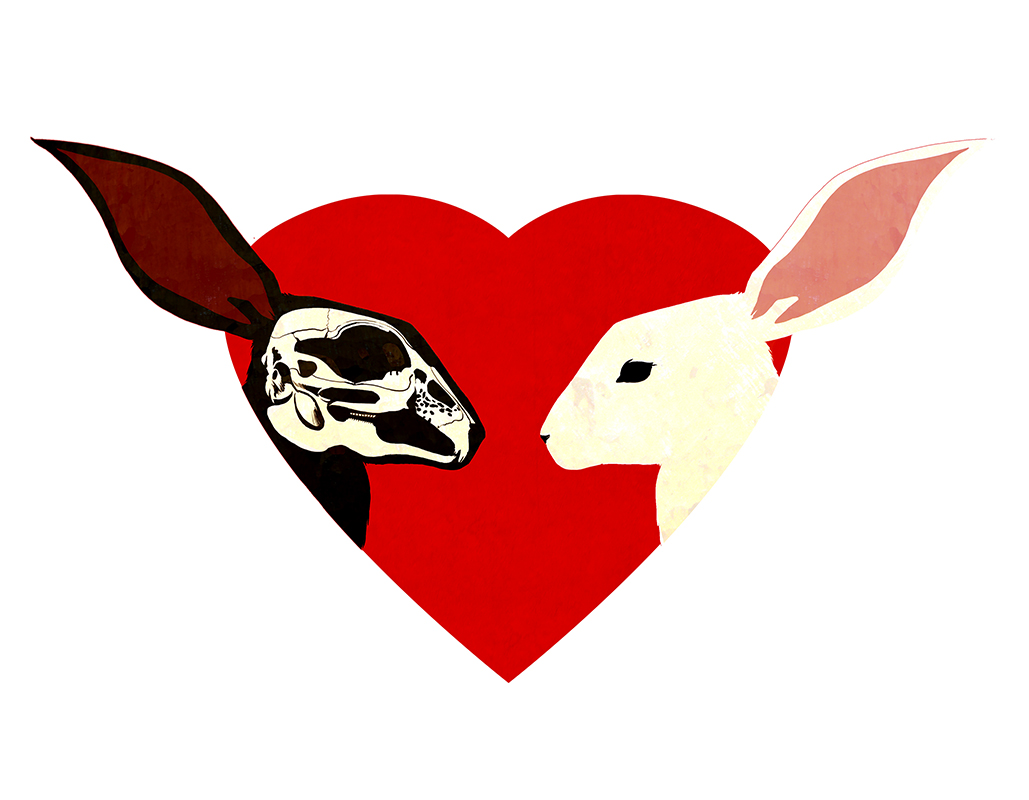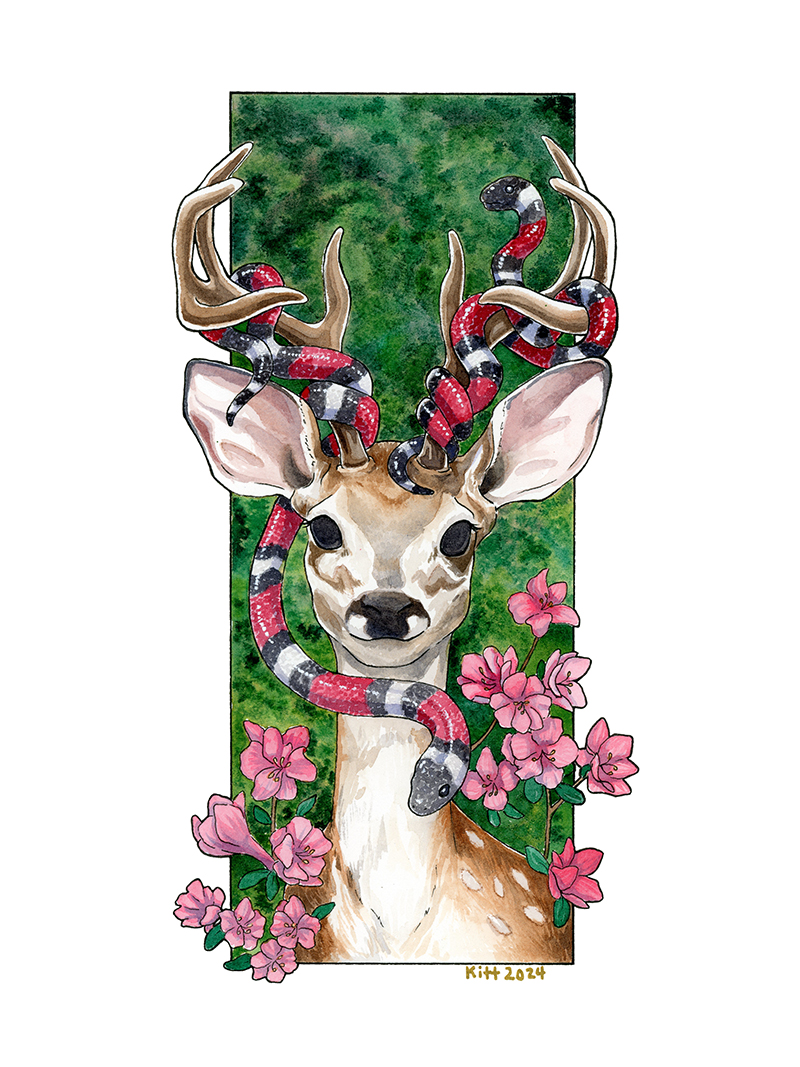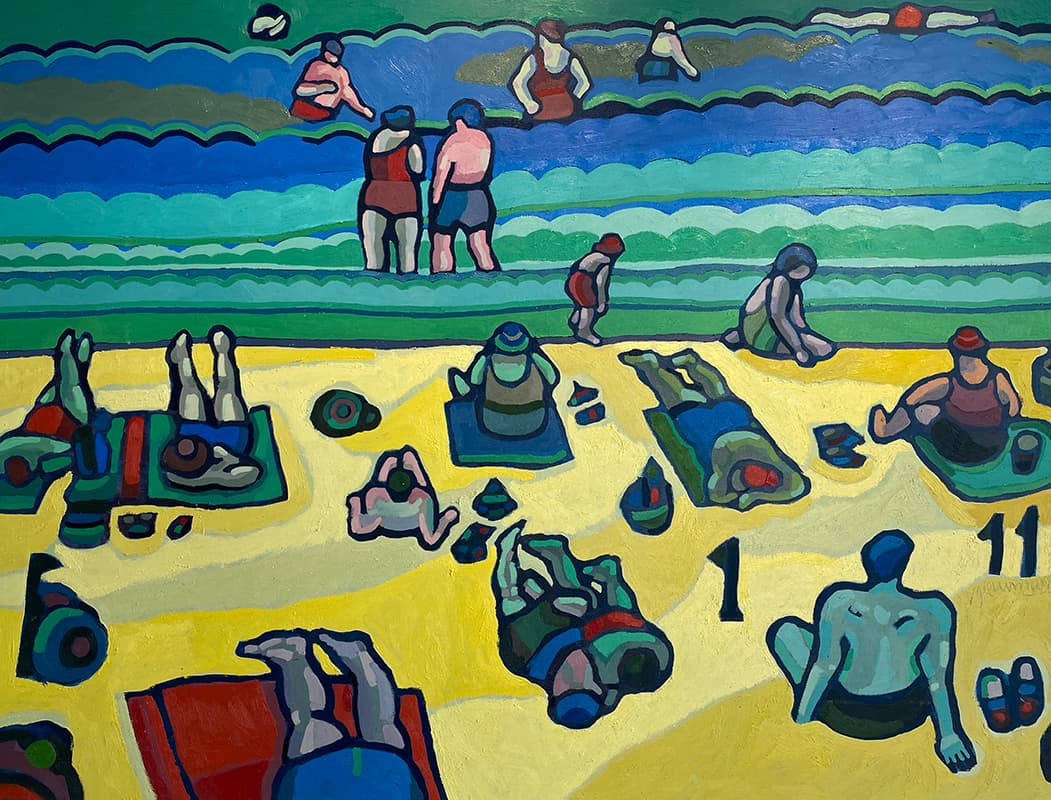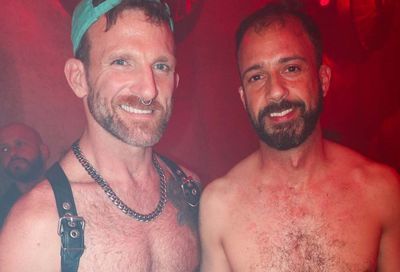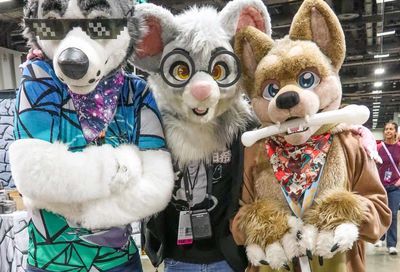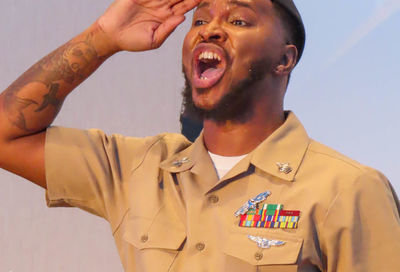Drawn Together
With their queer artists' collective Boys Be Good, Christopher Cunetto and Jason Edward Tucker are finding that there's strength – and artistry – in numbers

Boys be Good: Cunetto
(Photo by Todd Franson)
MW: Somehow you two met. How did that happen?
CUNETTO: I needed a camera for a project that I was working on, and I knew of Jason so I sent him a Facebook message and I said, ”Can you [loan] me a camera, please? Pretty please?”
TUCKER: I [loaned] him a camera.
CUNETTO: Which I actually never ended up using –
TUCKER: He had it for six months.
CUNETTO: But we got together and ended up talking about our experiences and the things we wanted to accomplish –
TUCKER: And our art.
CUNETTO: And our art. And our work and the things we were thinking about working on. From my perspective, it was a really organic relationship from the start. It’s one of those times, which I think is rare, when you meet someone and instantly hit it off in a way that is uncommon and uncommonly good.
TUCKER: Our work comes from completely different backgrounds in terms of aesthetics. But we were able to sort of hone in on this idea of queer identity – not necessarily from depicting ourselves in our work, but depicting a type of voice for queer identity through what we’d been creating. That’s where we really connected.
MW: And Boys Be Good sprang from this friendship?
TUCKER: Yes. The idea was the idea of a collective. It was like, “Let’s make this happen, let’s make this happen.” And from there it grew, because we have a lot of connections through a lot of queer artists that are working in this city, especially through the Corcoran.
CUNETTO: We hit the ground running. We were like, “We are fucking doing this and it’s happening now, and we’re not waiting, and we want this to be jelled now.” And so we made it happen.
TUCKER: It happened around the time of the Hide and Seek censorship.
CUNETTO: Just after.
TUCKER: It was like three months afterwards.
CUNETTO: It was when people were still talking about it. We were incensed that it was the target of criticism. I mean the Corcoran went through this in the ’80s when they were trying to mount the Mapplethorpe exhibition, and there was this big outcry, ”Oh, public funds are being used for this type of work, blah blah blah!” It seemed to be so backwards that this was still happening, so part of our motivation was to form a group or movement or a body of work that represented solidly this world and this culture, and our perspective, and our times. Because clearly it’s still an issue for the entire country. So we needed to really voice what’s happening now at the kind of grassroots levels of gay culture.
Support Metro Weekly’s Journalism
These are challenging times for news organizations. And yet it’s crucial we stay active and provide vital resources and information to both our local readers and the world. So won’t you please take a moment and consider supporting Metro Weekly with a membership? For as little as $5 a month, you can help ensure Metro Weekly magazine and MetroWeekly.com remain free, viable resources as we provide the best, most diverse, culturally-resonant LGBTQ coverage in both the D.C. region and around the world. Memberships come with exclusive perks and discounts, your own personal digital delivery of each week’s magazine (and an archive), access to our Member's Lounge when it launches this fall, and exclusive members-only items like Metro Weekly Membership Mugs and Tote Bags! Check out all our membership levels here and please join us today!


